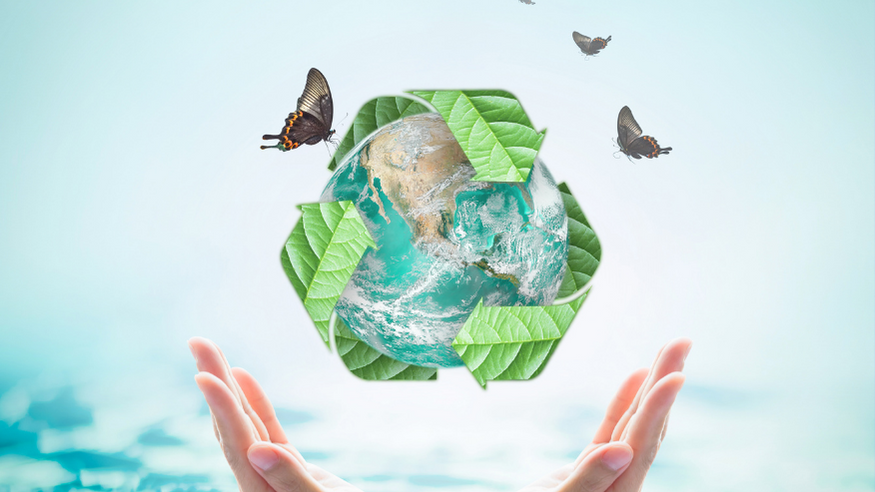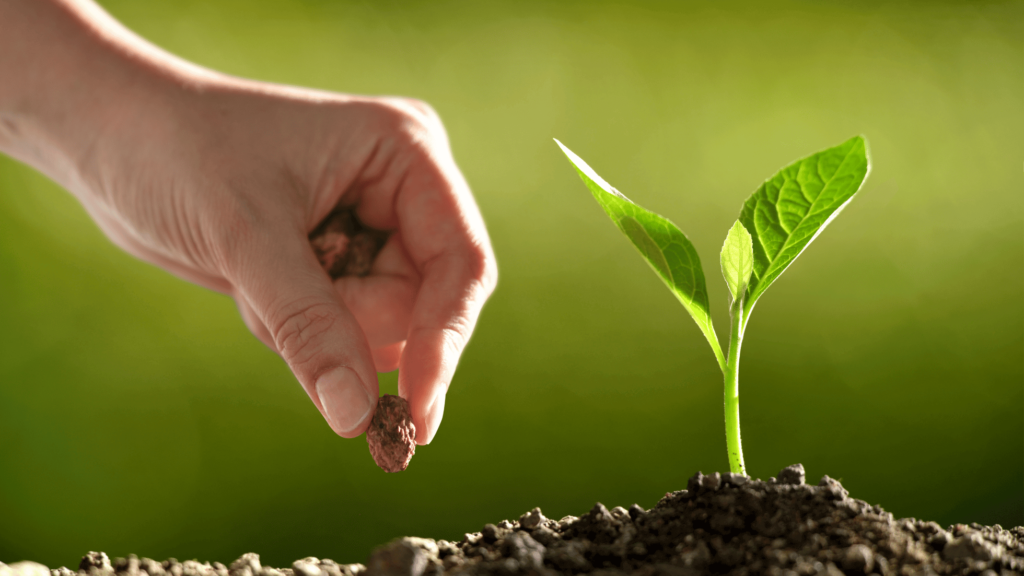Being economical with water is rewarding. Water is a very valuable resource. It sustains life on Earth; thus, its conservation is essential for both environmental and humanitarian causes. Islam is the complete conduct of life and provides guidance in every aspect of life. It put a huge emphasis on the appropriate use of resources, and the followers of Islam are encouraged to consume the resources consciously. Being economical with water is the clear instruction of Islam, as it recognizes the significance of water and rewards those who conserve it. This article explores the teachings of Islam regarding water conservation. It highlights how individuals can efficiently utilize water in their daily lives while reaping the rewards promised by their faith.
The Significance of Water in Islam
The Significance of Water in Islam:
Water is vital in Islamic beliefs, representing purity, cleanliness, and life. The Holy Qur’an mentions water numerous times, highlighting its essential role in the creation and sustenance of all living beings. It is a great reminder for believers that water is a blessing from Allah (SWT) and should be used wisely and responsibly. Allah says in the Quran,
وَجَعَلْنَا فِيهَا رَوَٰسِىَ شَـٰمِخَـٰتٍۢ وَأَسْقَيْنَـٰكُم مَّآءًۭ فُرَاتًۭا
“…and placed upon it towering, firm mountains, and given you fresh water to drink” [1]
This verse urges us to express gratitude to Allah (SWT) for the blessings bestowed upon us. We must be conscious of such a blessing and not waste it at any cost.
Water Conservation in Islamic Practices
Islamic teachings provide guidance on water conservation through various practices and rituals. It serves as a reminder that we should not be greedy to keep this resource to ourselves and neither should we use it so excessively. The Holy Quran states:
۞ وَإِذِ ٱسْتَسْقَىٰ مُوسَىٰ لِقَوْمِهِۦ فَقُلْنَا ٱضْرِب بِّعَصَاكَ ٱلْحَجَرَ ۖ فَٱنفَجَرَتْ مِنْهُ ٱثْنَتَا عَشْرَةَ عَيْنًۭا ۖ قَدْ عَلِمَ كُلُّ أُنَاسٍۢ مَّشْرَبَهُمْ ۖ كُلُوا۟ وَٱشْرَبُوا۟ مِن رِّزْقِ ٱللَّهِ وَلَا تَعْثَوْا۟ فِى ٱلْأَرْضِ مُفْسِدِينَ
“And ˹remember˺ when Moses prayed for water for his people, We said, “Strike the rock with your staff.” Then twelve springs gushed out, ˹and˺ each tribe knew its drinking place. ˹We then said,˺ “Eat and drink of Allah’s provisions, and do not go about spreading corruption in the land.” [2]
Instructions of Islam about the careful use of water in Wudhu and Ghusal
Wudu, the ritual ablution performed before prayers, and Ghusal, a full-body ritual purification, serve as a reminder of the importance of cleanliness and water conservation in Islam. Muslims are taught to perform Wudu and Ghusal efficiently by limiting the washing of their body parts three times in Wudhu and Ghusal. This practice encourages mindfulness and responsible use of water, reminding individuals of their duty to water preservation. It was narrated from ‘Amr bin Shu’aib, from his father that his grandfather said:
“A Bedouin came to the Prophet (peace and blessings be upon him) to ask him about Wudu’, so he showed him how to perform Wudu’, washing each part three times, then he said: ‘This is Wudu’. Whoever does more than that has done badly, done to extremes, and done wrong.” [3]
Narrated Jubair bin Mut ‘im:
“Allah’s Messenger (peace and blessing be upon him) said, “As for me, I pour water three times on my head.” And he pointed with both his hands.”[4]
Water Conservation is an environmental responsibility of Muslims
Conservation of water comes from the responsibility of Muslims toward the environment. It demands a deep understanding of the significance of natural resources. As Muslims, we believe in mindful living that owes no consequences for fellow Muslims. When we save and be efficient with the water we use, we also enable others to use it. We should not hoard the water for ourselves and let it be resourceful so that others can also utilize it. Islam teaches us justice and balance in resource utilization. Every Muslim is required to be careful while using the resources of Allah’s Land.
The Social Impacts of Being Economical with Water
From a worldly perspective, water conservation yields numerous practical benefits. By limiting water consumption, individuals can save money on utility bills and contribute to the larger goal of sustainable development. Conserving water also helps protect the environment, preserve ecosystems, and mitigate the impact of droughts and water scarcity, affecting millions worldwide. Additionally, being economical with water has a significant social impact, as it involves various aspects of society, ranging from public health to economic stability.
Public Health and Sanitation:
Conserving water is an important factor in maintaining public health and sanitation. Many regions of the world lack clean and safe water. By being economical with water, we can help to increase water availability for critical needs like drinking, cooking, and sanitation. This improves overall public health and also helps in preventing waterborne diseases.
Equitable Access:
Water conservation promotes equitable access to water resources. In regions facing water scarcity or limited infrastructure, individuals who use water efficiently ensure enough supply for everyone. Individuals can contribute to a fair distribution of water resources by avoiding wastage, enabling vulnerable communities to access this essential resource.
Resolve Water Conflicts:
Water scarcity is a global issue affecting millions of people. By practicing water conservation, individuals can help alleviate water scarcity challenges. Conserving water reduces the strain on freshwater sources, such as rivers and groundwater, ensuring sustainability. This, in turn, mitigates conflicts over water resources and promotes harmony within communities and regions.
Economic Stability:
Water is essential for economic activities such as agriculture, industry, and tourism. By being economical with water, individuals contribute to the stability and sustainability of these sectors. Agricultural practices that prioritize efficient irrigation systems, industries that adopt water-saving technologies, and tourists who practice responsible water usage all help to safeguard the economic stability of communities and nations.
Environmental Protection:
Water conservation is closely linked to environmental protection. Individuals help preserve aquatic ecosystems, wetlands, and wildlife habitats by reducing water consumption. These habitats are important for maintaining the ecosystem. When we save water, we also help keep the natural environment safe. This creates a positive impact on social well-being and cultural heritage.
Climate Change Resilience:
Climate change exacerbates water scarcity and challenges water availability in many regions. Individuals may help to create resilience against the effects of climate change by practicing water conservation. Using water wisely makes communities less prone to droughts and other severe weather, guaranteeing a steady supply of water during difficult times.
Educational and Behavioral Change:
Promoting water conservation fosters educational and behavioral change within communities. Awareness campaigns, educational programs, and community initiatives create a culture of responsible water usage. These efforts encourage individuals to value and appreciate water as a finite resource, leading to long-term behavioral changes that extend beyond water conservation, benefitting society.
Practical Tips for Water Conservation in Islam
Implementing water conservation practices in daily life can be straightforward and rewarding. Here are some practical tips that Muslims can follow:
Mindful Wudu and Ghusl:
First and foremost, we must perform wudu efficiently. We should only use the necessary amount of water. Avoid excessive wastage and ensure cleanliness while adhering to the principles of moderation. It was narrated by ‘Abdullah bin ‘Amr:
“The Messenger of Allah passed by Sa’d while performing ablution, and he said: ‘What is this extravagance?’ He said: ‘Can there be any extravagance in ablution?’ He said: ‘Yes, even if you are on the bank of a flowing river.'”[5]
Water-Efficient Appliances:
We should install water-efficient devices. Such as low-flow faucets and showerheads to minimize water usage. These fixtures can significantly reduce consumption without compromising functionality.
Repairing Leaks:
Regularly inspecting and fixing leaks in plumbing systems should be a common practice. That way, we prevent water wastage. Even minor leaks can lead to significant water loss over time, and addressing them as quickly as possible is essential for conservation efforts.
Outdoor Watering Practices:
Water outdoor plants and gardens during cooler times of the day to minimize evaporation. We should utilize mulch and drip irrigation systems to maximize water absorption and reduce runoff.
Rainwater Harvesting:
We should collect rainwater for household use, especially for tasks that do not require potable water. Rain barrels or underground storage systems can help capture and store rainwater efficiently. Rainwater is considered to be pure water before touching muddy ground. Hence, the rainwater is a real source of water. Even the Holy Quran, it is mentioned that:
وَهُوَ ٱلَّذِىٓ أَرْسَلَ ٱلرِّيَـٰحَ بُشْرًۢا بَيْنَ يَدَىْ رَحْمَتِهِۦ ۚ وَأَنزَلْنَا مِنَ ٱلسَّمَآءِ مَآءًۭ طَهُورًۭا– لِّنُحْـِۧىَ بِهِۦ بَلْدَةًۭ مَّيْتًۭا وَنُسْقِيَهُۥ مِمَّا خَلَقْنَآ أَنْعَـٰمًۭا وَأَنَاسِىَّ كَثِيرًۭا
“And He is the One Who sends the winds ushering in His mercy, and We send down pure rain from the sky, giving life to a lifeless land, and providing water for countless animals and humans of Our Own creation.” [6]
Conclusion
Being economical with water is a social and environmental responsibility of every individual and a deeply rewarding practice in Islam. By conserving water, Muslims can fulfill their religious obligations, gain spiritual rewards, and contribute to a sustainable future. Through conscious efforts and practical steps, individuals can reduce water consumption, protect the environment, and inspire positive change within their communities. Embracing water conservation by following Islamic teachings allows Muslims to exemplify their faith, honor their natural resources, and positively impact the world.
Being economical with water is rewarding in Islam and is part of a fantastic content series. For more, you are encouraged to follow our whole series, Time to Revive, where we discuss the forgotten Sunnah of Prophet Muhammad, Peace be Upon Him, and try to revive them by considering most of the perspectives of the modern world. Reading them and making them a habit is now your choice.
By Jowairia Shahid
References
- Al Quran (Surah Al-Mursalat, 77:27)
- Al Quran (Surah Al-Baqarah, 2:60)
- Sunan an-Nasai 140 : Book 1, Hadith 141
- Sahih al-Bukhari 254 : Book 5, Hadith 7
- Sunan Ibn Majah 425: Book 1, Hadith 159
- Al Quran (Surah Al-Furqan, 25:48,49)




